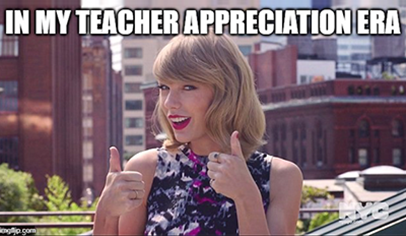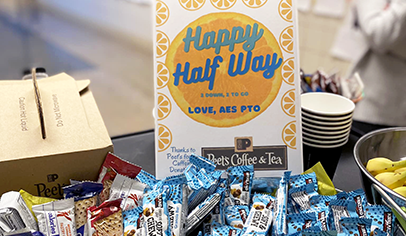I fit the description perfectly of the type of person who should be griping that teachers don’t do their share to help out our parent groups.
I’m a parent group leader at my children’s school. I spend my professional days working with parent group leaders across the country. I’m a huge believer that teachers should support parent involvement, and I know for a fact that teachers benefit in so many ways from parent involvement. By all rights, I should be leading the charge in the annual “why do we even have the ‘T’ in ‘PTO’ anyway?” whine session.
But I won’t do it. And neither should you. It’s simply not productive, and it can do real harm in our schools.
Forget your group’s name or the middle letter of your acronym for a second; that letter T has led to more misplaced stress for parent groups than anything else I can think of. Instead, ask “What are the goals of our group?” Is your intention to somehow have parents helping with teachers’ work? Are parents teaching reading and math? Or are you, like nearly all the groups I work with, focused on developing a community of parents to help create the best environment for your kids to learn in and for excellent teachers to teach in?
The most accurate name for our groups would be Parent Association or Involvement Committee or even (like one acronym) Home and School Association.
I’m not suggesting we all go about changing our groups’ well-established names. But I am suggesting that we not let those well-established names send us into unwarranted battles with teachers. It’s absolutely great when teachers proactively connect with our parent group efforts. And it’s awful and harmful to our schools and kids when teachers actively work against us. But it’s also absolutely possible to do great work without teachers serving on any of our committees or attending any of our meetings.
Would you rather have teachers who excel at teaching the three R’s and inspiring our kids in the classroom but who don’t get involved with your parent group? Or teachers who are just OK at teaching the three R’s but love counting fundraising returns and attending spaghetti suppers? I’ll take the first every time. And our group will gladly work to create the kind of atmosphere where those terrific teachers can excel even more.
In the best case, obviously, we’d have great teachers who also actively cooperate with our parent group efforts. And those who desire it are more than welcome to join and help lead the group. With that in mind, it’s important to note that the annual “Where are the T’s?” gripe session (or perhaps you only give teacher grants to those who attend your meetings—ugh!) actually causes even more distance between your group and teachers. That doesn’t help anyone.
Great administrators administrate. Great teachers teach. Great parent groups create an atmosphere that encourages involvement and learning and community. When we each play our key roles well—even if we have to play them alone—our schools win.














